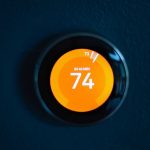What To Consider When Setting Up a Recording Studio
The advantages of having an in-home recording studio are limitless. For those who need access and have the space, this can open many doors to producing original music, working on your time, and supporting a healthy hobby. Not to mention, you’ll save a lot of money on hourly studio rates.
Let’s look at what to consider when setting up a recording studio to ensure you are on the right track!
Outline Your Budget
An in-home studio has various requirements to be fully functional, so you should outline a clear budget. In addition to the budget, create a realistic timeline to complete the project. You will need various things to bring this full circle, including:
- Computer
- Interface
- Software
- Mics
- Musical instruments
- Acoustic treatment
- Electrical work
- Furniture
Other things may come up as you work that you might not have in your budget, so consider leaving a little wiggle room. Otherwise, aim to stay within the lines of the budget.
Clarify Your Focus
Once you have a budget, it’s time to clarify your focus area. Is it recording your own music? Or is it renting the space for others to create music? Since it’s in your home and on your terms, get specific with the studio’s purpose to ensure you maintain your budget and make it worthwhile.
Determine Your Needs
A vital component to understanding and determining your needs is zoning in on your focus. Once this is ready, you can get serious about what you need to make this happen. This is also the best time to connect with audiovisual contractors who can help you bring your vision to life. They can help establish the equipment requirements and cover the bases regarding renovation or construction.
Consider Space Requirements
Initially, you may have a space in mind that you feel will make the perfect studio. But once you factor in your focus area and equipment requirements, that may change. A significant part of what to consider when setting up a recording studio is ensuring the sound is accurate, the instruments have adequate space, and the musicians have appropriate accommodations.
Identify the Electrical Needs
The electrical demands of space are unavoidable, and you need to ensure there is enough power supply to keep up. Specifically, if your studio is for more than hobby work, you will want to ensure the electrical system can accommodate higher recording and equipment demands. Ensure your design team and contractors keep the focus area in mind to ensure electrical needs are met.
The advantages of an in-home recording studio are rewarding. But there are various things to consider before bringing it to fruition. Reach out to Aztec Sound and Communications to learn more about completing this process!




